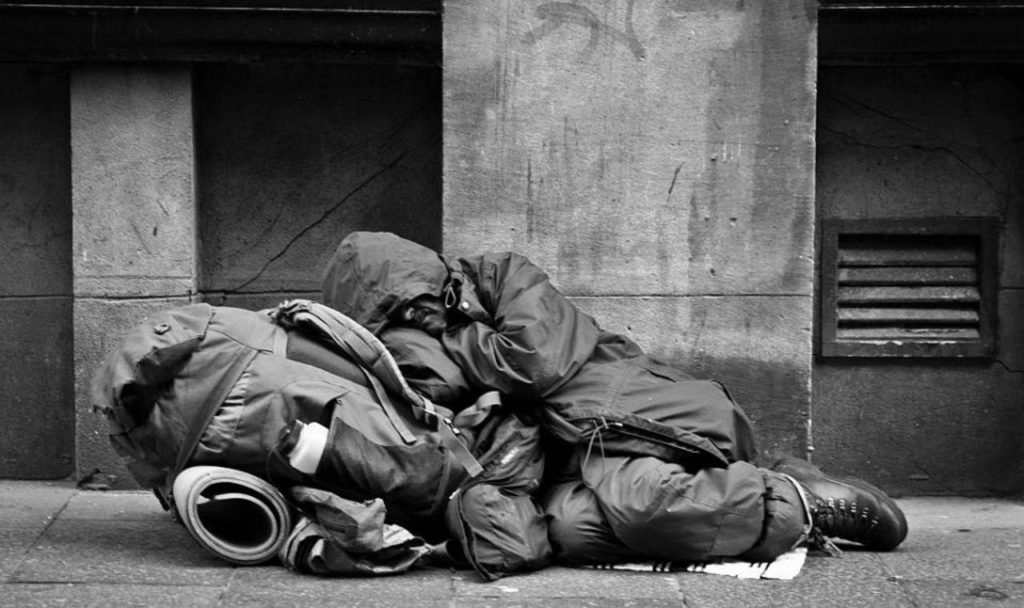Homeless people in the streets of Brussels will now be given a 'certificate of non-housing' to prove they cannot obey the rules of the curfew currently in force across the country.
The certificates will be distributed by field workers, mobile teams and even the emergency services of the Sint-Jan and Sint-Pieters hospitals, according to an announcement by Christophe Thielens, the spokesperson of the Samusocial aid organization.
As of today, Brussels faces a curfew between 10:00 PM and 6:00 AM, as part of a new set of rules introduced on Saturday. The measure, which calls for people to be within their home for those hours, does not account for those who have no choice in the matter, according to Thielens.
Related News
- Flanders could introduce new measures on Tuesday
- Belgium in Brief: Flanders Falls Behind
- Coronavirus measures in Brussels: extended curfew, culture in lockdown
"It is not necessarily their decision, because the shelters do not have enough capacity to house them all. Therefore, it would be a double punishment to write them up because they could not find shelter in a centre. For us, the first goal of the dispensation of these certificates is to protect them from a fine and to make sure they are not disturbed when they try to find an improvised shelter outside".
Already 2,500 certificates have been printed, but more will follow. Police have assured Samusocial that a policy of tolerance towards the homeless will be implemented.
According to the latest figures (2018), there are 2151 recorded homeless people in Brussels, and most of them sleep in homeless shelters situated close to the hospital. In the very earliest stage of the pandemic, between 3 and 29 March, 238 patients were hospitalised with Covid-19, 14 of them homeless – a prevalence of 5.88%.
The conditions in which homeless people live, which make hygiene and social distancing difficult if not impossible, are considered circumstances that aggravate their chances of becoming infected - leading some researchers to suggest homeless people are three times as likely to get infected.
Jules Johnston
The Brussels Times

